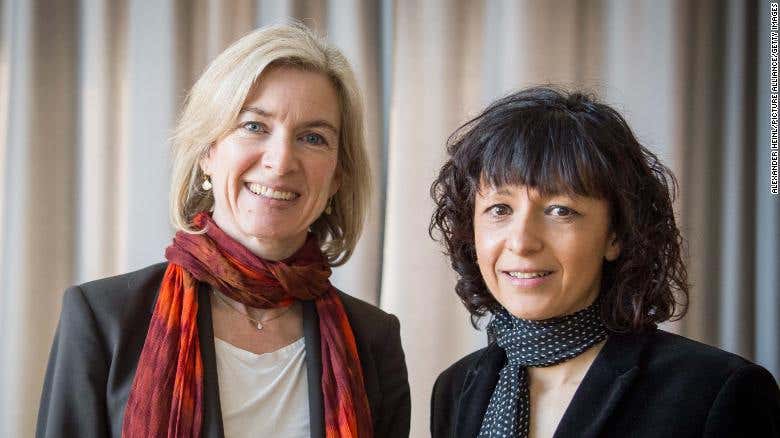Nobel Prize in Chemistry awarded to scientists who discovered CRISPR gene editing tool
The Nobel Prize in Chemistry has been awarded to Emmanuelle Charpentier and Jennifer A. Doudna for the development of a method for gene edit

[Oct. 7, 2020: Emma Reynolds and Katie Hunt]
The Nobel Prize in Chemistry has been awarded to Emmanuelle Charpentier and Jennifer A. Doudna for the development of a method for genome editing.
They discovered one of gene technology's sharpest tools: the CRISPR/Cas9 genetic scissors. Using these, researchers can change the DNA of animals, plants and micro-organisms with extremely high precision.
Before announcing the winners on Wednesday, Göran K. Hansson, secretary-general for the Royal Swedish Academy of Sciences, said that this year's prize was about "rewriting the code of life.".
The CRISPR/Cas9 gene editing tools have revolutionized the molecular life sciences, brought new opportunities for plant breeding, are contributing to innovative cancer therapies and may make the dream of curing inherited diseases come true, according to a press release from the Nobel committee.
There have also been some ethical concerns around the CRISPR technology, however.
Charpentier, a French microbiologist, and Doudna, an American biochemist, are the first women to jointly win the Nobel Prize in Chemistry, and the sixth and seventh women to win the chemistry prize.
Charpentier said at a Wednesday news conference that she hoped the win sent a "positive message to the young girls who would like to follow the path of science, and to show them that women in science can also have an impact through the research that they are performing."
This Brighter Side of News post courtesy of CNN.
Like these kind of stories? Get The Brighter Side of News' newsletter.



